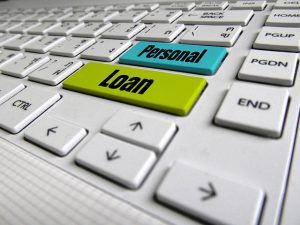Although some loans, like personal loans, are easier to get defaulting loan payments can get you into serious trouble
by: Hitesh Khan/
Personal loans are a way to use tomorrow’s income today, and unlike other loan products like mortgage loans or education loans, the process involved to apply for best personal loan is relatively simple.
But you must note that the interest rates are much higher than, say, for a car loan. This is because personal loans are unsecured loans, which means that the personal loan is not backed by any asset. The loan amount and interest rate depend on different parameters such as your income, credit history, repayment capacity, and others.
As even the best personal loan comes with high interest rates, so defaulting loan payments will put you on a downward spiral.
Table of Contents
Here are some of the lowest personal loan interest rates offered by various banks:
Personal loans are basically unsecured loans which typically from $1,000 – $100,000 with fixed or variable interest rates that can be used to make a large purchase or to consolidate debt. Borrowers can use personal loans for credit card debt consolidation, business expansions, home improvements, medical bills and other major life expenses. Once recent study showed that personal loans are now the fastest growing consumer debt.

The best personal loan typically has a set term of three to five years and generally charge a fixed interest rate.
One report showed that millennials are driving the growth of the personal loan market. The report added that this category of people are rapidly coming into their earnings and credit wheelhouse – and because it takes time to become creditworthy, a higher proportion of millennials end up taking personal loans.
Even the best personal loan can get you into trouble if you are defaulting loan payments. A loan default or loan delinquency is your failure to make loan repayments when they are due. Extended delinquency can result in a loan default. It is the failure to repay the loan as per the terms agreed between you and credit institution.
When defaulting loan payments, the interests owed on your personal loans snowballs, drastically reducing your credit score and impacting your ability to receive future credit for lives other needs like the best home loans. Besides your personal properties being seized for default, the lending agency will also send a debt collection agency after you. The debt collection agency will try to contact you to repay, and this may include them trying to reach you at your place of work, or at home in full view of all your neighbours.
So, the rule of the thumb is, if you think you are going to be defaulting loan payments, contact your lender to discuss restructuring your best personal loan.
It is better to contact you lender to restructure rather than face the dire consequences of defaulting loan payments, which includes:
- Employment difficulties,
- Having money from seized from your accounts,
- Legal proceedings, and
- No access to crucial loans.
If the debt collection agency is not able to collect the delinquent loan, sooner or later it will reach a lawyer’s desk, and a collection attorney may take you to court after issuing a final letter calling upon you to pay your debt. If the debt is deemed valid, the court can issue a judgment against you, ordering you to pay it — and legal fees. Once you go to court, your default becomes a matter of public record.
A court judgment may allow a creditor to put a lien on your property, which means that if you ever sell it you’ll be forced to cover over some or all of that debt. A lender or collector can also ask a judge for an execution order.
Fortunately, you lender can’t go to the police to recover the personal loan extended to you. Personal loan cases are treated as civil cases instead of criminal cases, so the police will take a hands-off approach. But be mindful that if the amount owed to all of your creditors (including credit cards and car loans) is at least $10,000, you can be made bankrupt in Singapore.
The problem however isn’t just being declared bankrupt. The Official Assignee can seize your belongings which in Singapore can include, property, tools of your trade, property held in trust for someone else, and even clothing and furniture.
In fact, if you even try to take vacation, you will need the OA’s permission or you can be fined up to $10,000 and/or jailed for up to 2 years.
Most personal loans are granted as unsecured loans. Borrowers don’t necessarily need to have the best credit or even any type of collateral as that is not the primary concern for the providers of these types of loans. Unsecured loans are provided more on good faith and what lenders need to provide are their name, NRIC and income verification.
No collateral is needed so if the loan goes into default, the lender will not get anything in return. Higher interest rates charged are the price to pay for not having collateral or a co-signer on these types of loans.
Because the lender is not operating with any type of collateral from the borrower, they are taking a greater risk. With that great risk comes higher interest rates as that is what a borrower can offer to a lender in that higher risk situation; a bigger rate of return.






